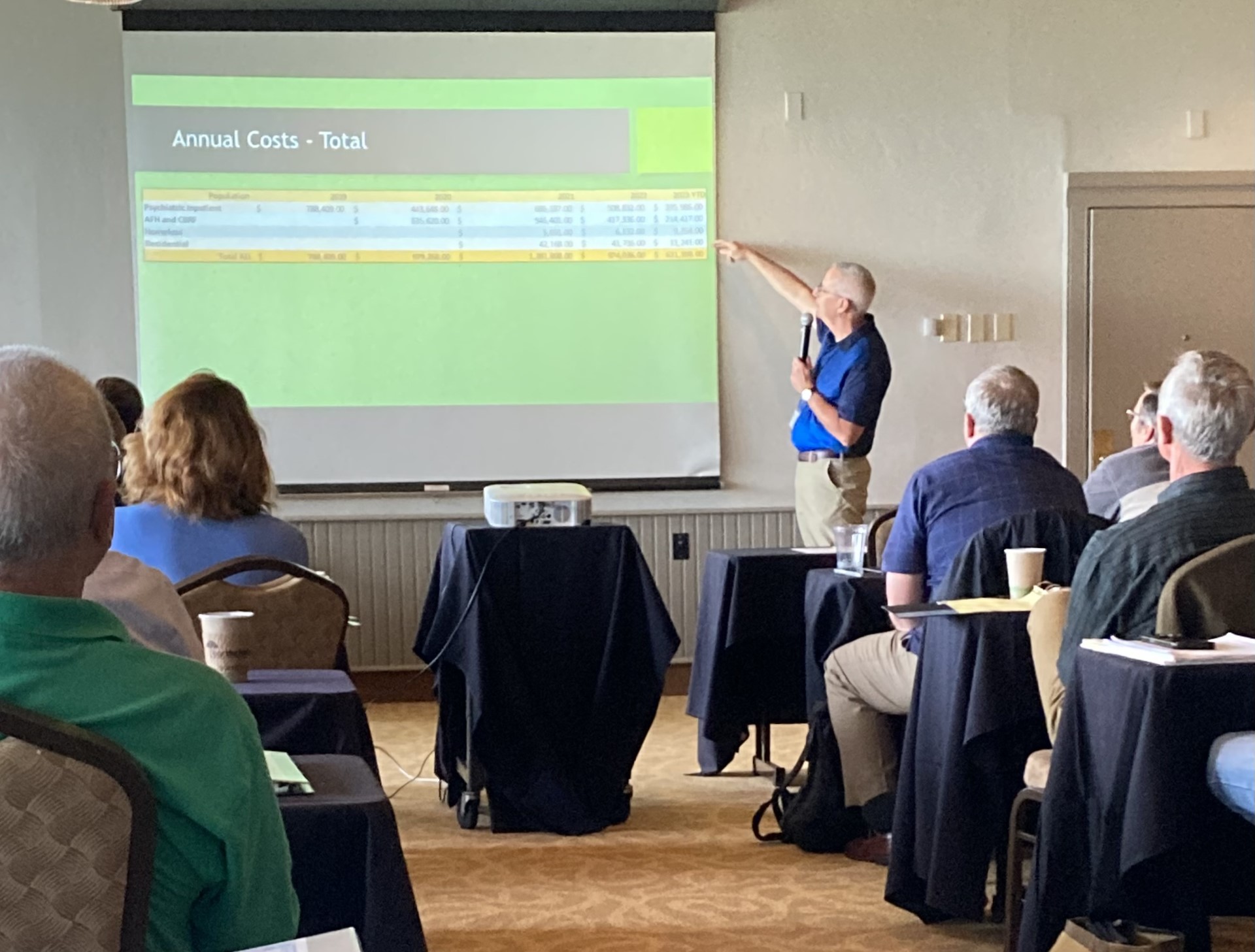The Door County government is considering three housing options to address the increased need for services related to alcohol and other drug abuse, mental health issues, and homelessness. The county Health and Human Services Board voted this week to recommend one of those options to the county facilities committee in order to keep the project moving forward, according to Joe Krebsbach, the Health and Human Services department director.
Homelessness is a relatively new issue faced by HHS, and there are no programs or services in place to meet the needs of this particular community, Krebsbach said.
Homelessness is more visible in the county than ever, Krebsbach said, and might not necessarily be someone living on the street. Vehicles, tents, and “couch-surfing” are all ways an unhoused person may deal with their situation, he said. Furthermore, when an AODA client in recovery is living in a home with other people who are using drugs, that is considered an unstable living situation, he said.
In June, HHS had 16 people seeking services who were at or near a crisis point, and all of them were homeless. “This is a high number for us,” Krebsbach said. Cases are complex, and AODA and mental health populations often overlap with homelessness, he added, especially in the population seeking services from his department.
During a presentation to the Door County Board of Supervisors at its annual budget planning workshop on Sept. 6, Krebsbach outlined three options for county housing. Stable housing is key for helping AODA, mental health and homeless clients, he said, and if the county is creative, a sober living facility could meet all those needs.
The options Krebsbach outlined include purchasing or building a duplex for male and female AODA clients to be housed separately; building an eight-plex-style apartment home which would provide more flexibility; or creating a multiplex by purchasing an existing home/duplex and building an eight-plex facility. The third option would cost the most but allow for the most flexibility and capacity, he said.
Beyond housing, Krebsbach urged board members to commit funding to an AODA counselor position and the adult drug treatment court program after grant funding for those programs ceases in 2025. Initial estimated funding needs after conservative revenue and savings amounts are factored in, according to Krebsbach, are $60,000 for the AODA counselor position; $127,680 for treatment court; and depending on which option the county agrees to, $188,680 to $205,880 for housing. These are annual costs. HHS has roughly $700,000 in funding earmarked for the initial cost of the housing project already, Krebsbach reported.
Krebsbach said he thought his proposals were well-received by the County Board.
Vinni Chomeau, who represents the Town of Gibraltar and part of the Village of Ephraim, said she is in favor of the combined multiplex facility. She said the project could save the county money, although she acknowledged quantifying costs for things that do not happen is difficult.
“It’s a huge savings in prevention if you can get treatment for someone in the community before it expands into a greater need,” she said.
Joel Gunnlaugsson, who represents the Town of Washington and part of the Town of Liberty Grove, agreed. A facility like the multiplex solves a lot of funding issues raised by sending people out of the county for services, he said.
“It’s time for the rubber to meet the road here – something has got to happen with this project,” Gunnlaugsson said.
A prevailing concern was the ability to staff the facility and attendant programs, Krebsbach said. It is a valid one, as the department is already struggling with finding providers for existing services, he said.
It is unusual for a county to run a facility like this, he added, but because of its geographic isolation, Door County is no stranger to doing things differently than other places.
“We don’t have any partners – there are no nonprofit treatment providers,” he said. “We can keep doing what we’re doing or be proactive in prevention.”
Moving forward
At a Monday meeting of the county HHS board, Krebsbach asked the board to consider which of the three transitional living options he presented would be moved forward as a recommendation to the County Board. The HHS board voted unanimously in favor of making a recommendation to the county facilities committee to begin getting estimates for the multiplex (duplex and eight-plex) option.
The facilities committee will get costs estimated and come back to the HHS board to decide how to proceed, according to county administrator Ken Pabich.
Additional budget proposals
The annual budget retreat also elicited other budget proposals.
At the retreat, all departments present their funding needs to the County Board. The board gave the budget its initial approval, as is, at the end of the retreat, and sent it back to committees and departments for finalizing before the November 2023 County Board meeting.
Pabich presented an idea to help municipalities in the county access better digital connectivity. The county could issue the overall debt for each municipality to upgrade and provide universal broadband internet service to its residents, he said. Each participating municipality would enter into an intergovernmental agreement to pay back the county for its respective share of the estimated total debt amount of $50,145,000, Pabich explained. The biggest advantage of this approach is that the county has an excellent credit rating, versus most municipalities not even having a credit rating, he said.
County employees also are a focus for the 2024 budget. The county must be sure to maintain employees as it grows, support core services, and make the majority of its financial investment in employee wages, training and services, benefits and morale, Pabich said.
“We want to make sure our employee experience is really top notch,” he added.
The County Board commissioned a compensation study done this year that will drive the budget, according to Pabich, and it included a market review of comparable counties, cities and villages; private sector data; and wage increases based on years of service.
The board at its retreat also discussed Capital Improvement Program projects. The program budgets and saves for long-term, big infrastructure projects. For 2024-28’s CIP, these include road maintenance, a possible library expansion and remodel, and an emergency services facility.
The 2024-28 CIP was approved by the finance committee at its July meeting and is slated for inclusion in the 2024 budget. CIP project costs for 2024 are $17,851,702 and are funded by tax levy, state and other funding sources, according to a resolution drafted by the finance committee and approved by the board in August.

